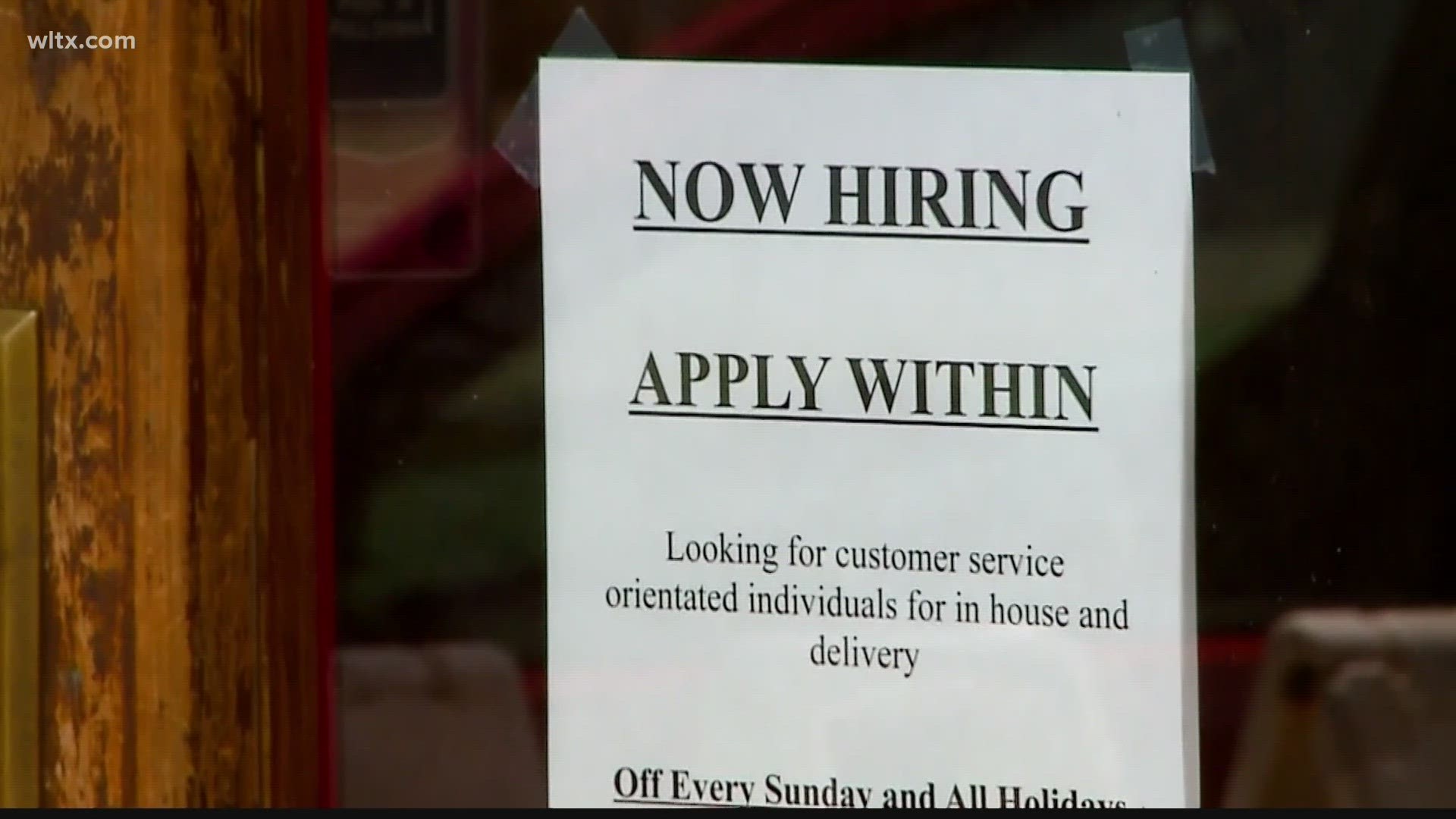COLUMBIA, S.C. — The South Carolina House voted Thursday to change how the state's unemployment benefits are divvied out.
The legislation, known as House Bill 4710, seeks to link the duration of unemployment benefits directly to the state's unemployment rate. Currently, South Carolina has a jobless rate of 3%, compared to the national rate of 3.7%.
Right now, laid-off workers are eligible for up to 20 weeks of benefits. The average weekly benefit is $236, according to the Department of Employment and Workforce (DEW).
If enacted, South Carolinians would be eligible to receive benefits for up to 12 weeks when the unemployment rate is 5.5% or lower. However, the number of weeks would increase incrementally if the unemployment rate surpasses certain thresholds, with a maximum of 20 weeks available if unemployment rates climb above 9%.
Proponents of the bill, including Republican Representative Micah Caskey, argue that it is a strategic move to support small businesses and strengthen South Carolina's workforce.
“It saves our businesses from paying more taxes than they need to pay because folks who are on unemployment when there are 161,000 jobs need to do something other than just take money from the government,” said Caskey.
Critics, however, such as Sue Berkowitz from the South Carolina Appleseed Legal Justice Center, question the necessity of the legislation and its potential adverse effects on vulnerable populations.
“I think that what we’re doing is we’re coming up with policy decisions that are supposed to broad brush everyone when in fact it can really hurt the people who need the help the most,” said Berkowitz.
Republicans tweaked the bill so it recalculated the jobless rate quarterly, as opposed to every six months, to align benefit durations more closely with economic fluctuations.
This amendment garnered support from Democrats like Representative Gilda Cobb-Hunter, who expressed reservations about the bill's potential consequences in rural communities.
“More so In rural areas, the ultimate barrier is that the jobs don’t exist. They’re not there,” said Cobb-Hunter. “While that may appear a small change, what is bubbling underneath the surface is an effort to continue the conversation so that county-by-county data can indeed be used.”
According to the Revenue and Fiscal Affairs office, the legislation would reduce how much the state pays out by 34.6 million dollars. In 2022-23 the state paid out $135.6 million in unemployment benefits out of the state’s unemployment insurance trust fund.
The amended bill now awaits further deliberation in the Senate. If signed into law, it would take effect for unemployment insurance claims starting on or after October 1st.
At least 11 other states have enacted similar legislation tying unemployment benefits to economic conditions, including Florida, Georgia, North Carolina, Alabama, Kentucky, and Tennessee.

